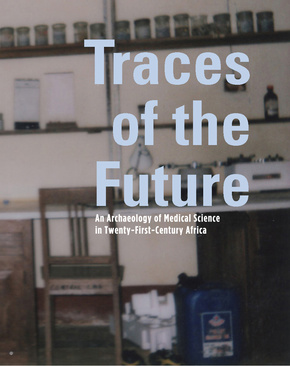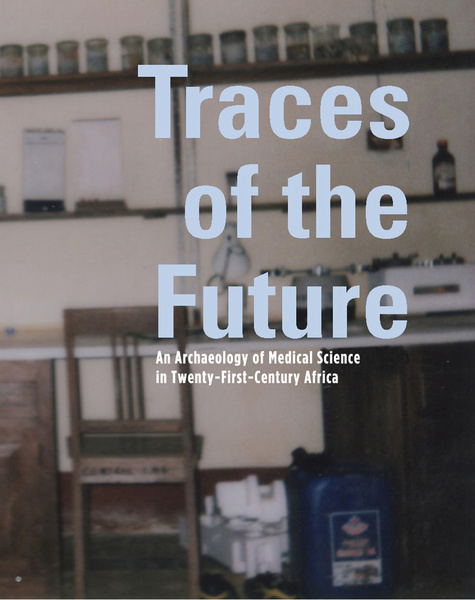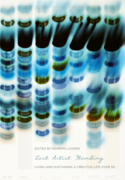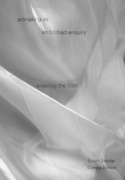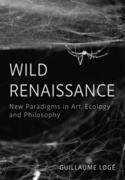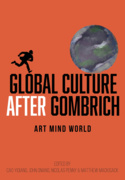Traces of the Future (Book)
An Archaeology of Medical Science in Africa
This book presents a close look at the vestiges of twentieth-century medical work at five key sites in Africa: Senegal, Nigeria, Cameroon, Kenya and Tanzania. The authors aim to understand the afterlife of scientific institutions and practices and the 'aftertime' of scientific modernity and its attendant visions of progress and transformation. Straightforward scholarly work is juxtaposed here with altogether more experimental approaches to fieldwork and analysis, including interview fragments; brief, reflective essays; and a rich photographic archive. The result is an unprecedented view of the lingering traces of medical science from Africa's past.
Edition
This book presents a close look at the vestiges of twentieth-century medical work at five key sites in Africa: Senegal, Nigeria, Cameroon, Kenya and Tanzania. The authors aim to understand the afterlife of scientific institutions and practices and the 'aftertime' of scientific modernity and its attendant visions of progress and transformation. Straightforward scholarly work is juxtaposed here with altogether more experimental approaches to fieldwork and analysis, including interview fragments; brief, reflective essays; and a rich photographic archive. The result is an unprecedented view of the lingering traces of medical science from Africa's past.
Paul Wenzel Geissler is a professor in the Department of Social Anthropology at the University of Oslo.
Guillaume Lachenal is a lecturer at the Universite Paris Diderot, junior fellow of the Institut Universitaire de France.
John Manton is Associate Professor in History at the London School of Hygiene and Tropical Medicine, specialising in the history, heritage and memory of medical research, disease control, and health systems in Africa and Southeast Asia. He has worked at Oxford, Cambridge, Ulster and in London, writing on leprosy and mycobacterial disease control in Nigeria and Cameroon.
Noémi Tousignant is affiliate member of the Department of Social Studies of Medicine at McGill, and guest researcher in History at the Université de Montréal. Her work focuses on scientific infrastructure, value, service, and dreaming in Africa. Her book on toxicological capacity and unprotection in Senegal is forthcoming with Duke University Press.
'This elegant, field-defining collection of sparkling originality excels as it curates, joining bits about five modern scientific sites in Africa with playful lines. The entire package suggests vital new affective methods for our times. These unruly junctions will productively challenge STS humanists, ethnographic historians, and students of global health practices. In our times of often ungainly, overtheorized immoderations, their innovative traces and tracing enable thinking deeply about relatively affluent African pasts. In these erstwhile spaces of scientific practice and development dreams, much remains not grim, rather bursting still with whims and guile.'
'There is, of course, a long history of anthropological writing on the subject of the future, but recently the discipline has witnessed a renewed interest in all kinds of futures –distant, near, and very often also irretrievably past. It is the latter kind, that of futures past, that is investigated in this wonderful book. Well informed and researched, and never dull, this edited volume explores various medical research stations and health centres across Africa, thereby offering a delicate contemplation of former ideas of future-oriented colonial science and medicine, and the ways in which they underpinned the ideologies of colonialist modernity and of progress that shaped these places and restructured the worlds around them. Combining various voices and modes of writing with original visual ethnographic explorations, this book reflects upon memory, nostalgia, and the passing of time, and as such it offers a delicate and often poetic and intimate but always insightful analysis of how the various times of the colonial past convert into the space of the now. A must read!'
'In an astonishing series of reports, engagements and reflexions, this book offers a powerful and often brilliant evocation of the sites and populations of a group of ruined, abandoned or transient scientific and medical establishments in west and east Africa. Layout and imagery, as well as intelligent analysis and story-telling, build up a compelling picture of modern ambitions and their fates. Without ever lapsing into nostalgia or condenscension, Traces of the Fuure is a path-breaking and exemplary project to help the objects and subjects of African scientific and medical worlds follow their own novel pathways.'
'This book makes original, invigorating contributions to scholarship on the colonial heritage of science, the history of transnational research collaborations, and African medical sciences. It is also recommended for those interested in mid-twentieth century narratives of progress.'
'Traces of the Future is a path-breaking, inspirational, and refreshing book that offers a close look at such vestiges of capitalism, modernity, and national and imperial ambitions. In this case, the book focuses not on the West’s decaying landscapes but those of postcolonial Africa. The book is superbly written – at times even poetic – and includes a preface by Nancy Rose Hunt. Additionally, its curatorial layout is striking.

